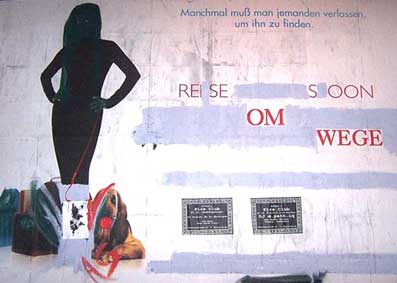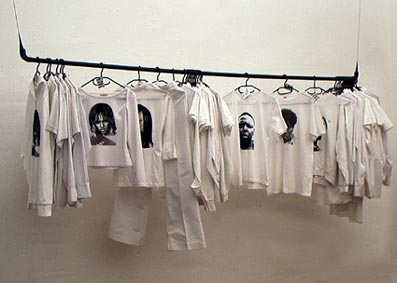CONCEPT SHOP
PLACEText: Paul Snowden
What we all like about Berlin? west or east, is the toughness and roughness this city has to offer, it is far from true poverty that we are fortunate enough not to know, but Berlin does provide the backdrop for a true modern urban lifestyle. Thanks to the rebellious nature or the simple – no one cares / learning by doing / just do it – attitude Berlin lives and it is home for some of the most out there ideas you may be confronted with. So confrontation is maybe the idea behind this months text.
In asessing the situation, in design and in life, it usually pays to step back and look at things from a different angle, so I turn to my straight outer amsterdam dutch designer friend, Eike, and my London art school friend, Ailsa, to assess the situation, so that we may possibly together, address the problem.

Eike: First off, what really suprised me is that I experience Holland so totally different now than I was still living in Amsterdam. Holland is so different from Germany. Feels like the other side of the world. I’m half German / half Dutch. thought I knew Germany. But I totally don’t. Berlin is different than Germany in general though. At least that is what people tell me and I sort of experienced it myself. More unfriendly and grumpy. But that would be generalizing. Hey but I need to, in order to point out the problems.
Paul: So, assuming there is a problem, what is it?
E: Generally people talk to much here and do less. That is very Amsterdam by the way. But Amsterdam isn’t a good reference point. I don’t like Amsterdam anymore. I would rather refer to Rotterdam because that city is physically more like Berlin. Raw. Uncut. Maybe because both cities were bombed in the second world war. Rotterdam people are do-ers. No talkers. Do your shit. And do it good. I unfortunately agree, Germans talk a lot about the problem and don’t go about the solution.

People are very passive here to. Not much undertake any action. Complaining about that there is no money, no clients instead of going and finding them. And than there’s this German angst thing. Afraid to make decisions or do things that doesn’t belong in the box called society. Out of the box thinking isn’t something that happens here a lot. Everyone wants to be safe. If it doesn’t exist in the system, it doesn’t exist at all. This angst thing goes deep. That’s why I think that German advertisements, marketing, campaigns and design are safe. Good, solid but never daring or on some edge. If I recall correctly Germany has a very impressive history of design, architecture, fashion etc. where is it now?
Alisa: Berlin is undoubtedly already successful in many respects. Obviously this will always be an inherent part of the luxury of working in a field that allows us the luxury of doing what we love. Its a completely different story in London where, as a result of almost unparalleled living expenses, a sense of urgency and the apparent necessity for constant self-promotion has become entrenched in everyone’s creative process’ and socialising. We are all trying to live the dream. But the impact of financial imperatives can make the quite ugly. Berlin doesn’t seem to have this problem to the same extent. At best this can be seen as an impressive illustration of ambition and healthy competition, but at worst it can become an unrelenting source of aggressive desperation.

It seems to pay tribute to ‘Concept Shop’, somewhat strange in the east side of town. We relate hip hop more to the western areas of the city? Wedding, Kreuzberg 36, Neuk?lln. Photocopied black and white posters from Hip Hop and R&B globally renowned musicians covered the neighbourhood. These portraits not only pay dues to superstars, but advertised or, heraled the ‘Concept Shop’.
The ‘Concept Shop’ extended this black and white iconography onto a small collection of clothing items. Inside the shop, browsing visitors got treated to a feisty collection of Hip Hop and R&B’s most explicit and defiant songs, blasting from the stereo, juxtaposing a shop window display of Tupac Shakurs adage: ‘Don’t judge me if you don’t know me’. Basic biographical notes provided elementary knowledge on the artists backgrounds and careers.
The stars of the ‘Concept Shop’ were maybe from the streets and using one of the most effective urban marketing areas – the Tshirts – took the long way home and arrived there again. A action from the hood, for the hood, a strange mix of information, beauty, good design and advertising.
Future locations for the shop will include London and Amsterdam. The progress of the shop will be logged in the ‘shop diary’, through which ideas, thoughts, gossip, documentation, and other resolved and unresolved matters are made accessible to the public. The artists welcome any additional comments on the subject of Hip Hop and R&B.
Read more ...





